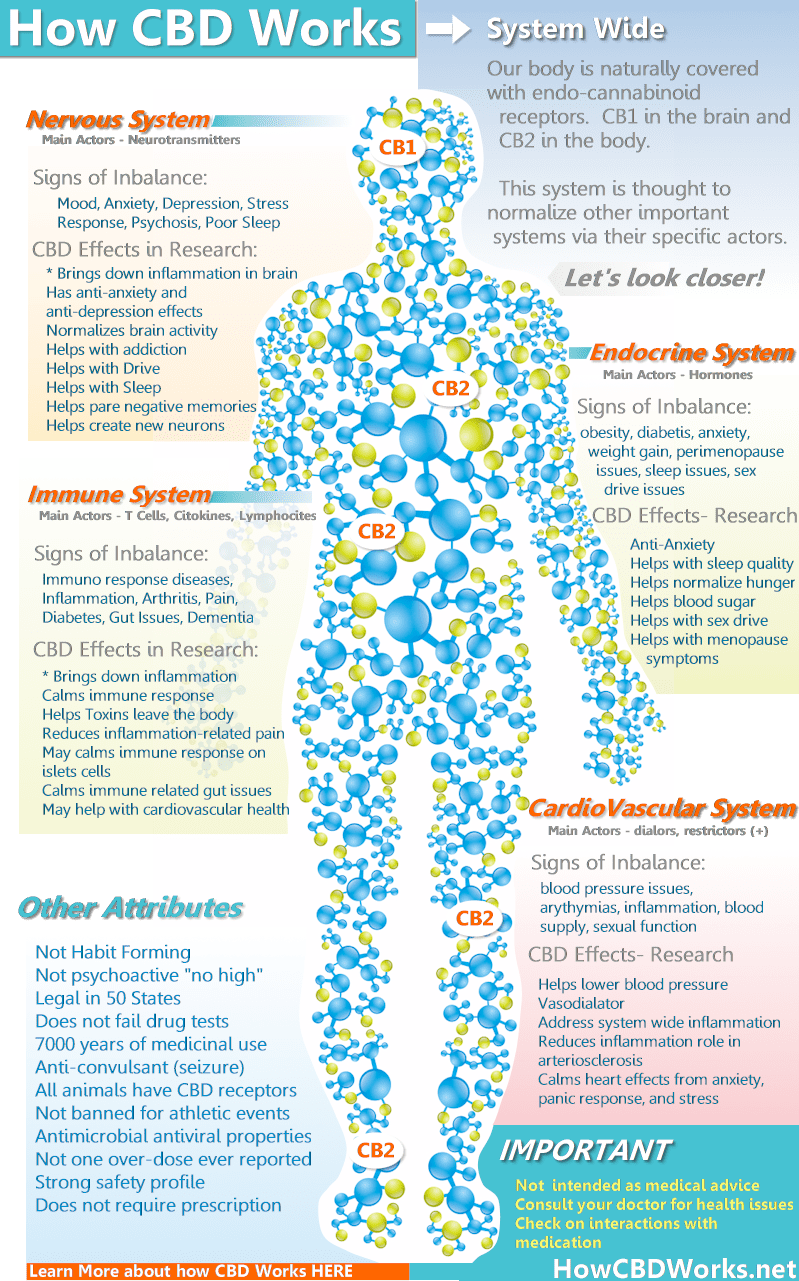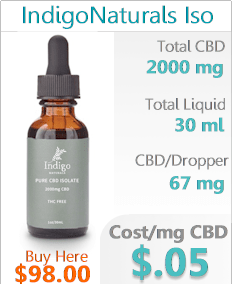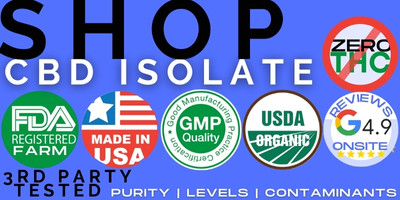CBD Research - How CBD Works

HOW DOES CBD WORK FOR PTSD
The brain's ability to change and learn is both a blessing and a curse.
The term is "plasticity".
Scientists use to think that the brain could not create new neurons, the building blocks of our brain.
After adolescence, you had the max amount of neurons for the rest of your life and it was all downhill from there.
Things have changed quite a bit on that front.
We now know that brain is continuously changing and even creating new neurons (in areas thought impossible) and more importantly...new connections.
This is by definition, "learning" in terms of how the brain sees it.
We can learn all kinds of things:
- Algebra
- The Piano
- Left-handed layups
- Addiction
- Trauma
PTSD obviously involves the latter although Algebra can be a close second.
The more intense the experience or the longer the duration, the more our brain builds pathways and neurons to remember it.
Even if we don't want to!
PTSD is an event and more importantly, our reaction to it, that has marbleized in our brain.
Like addiction, it's really the downside of learning.
Here's the deal.
What the brain can learn, it can unlearn as well!
More importantly, researchers recently found the exact area of the brain...the specific neurons even that are tasked with remembering "bad" events!
We're also seeing tremendous potential for CBD in affecting this process and unwinding it.
The brain's an amazing thing.
But it's not perfect and occasionally, it gets stuck in negative loops.
We'll touch on how CBD and the endocannabinoid systems affect this process.
First, one quick example of how strange the brain can be.
A researcher was working with wounded veterans who had lost a limb traumatically in battle.
Occasionally, when this happens, the pain signal is stuck on for the phantom limb from the event.
This is horrific.
The scientist tried an ingenious experiment:
He set the patient up at a desk with a mirror that would trick him/her into thinking they were seeing both limbs.
It's similar to the carnival mirror trick where you stand in the middle and it looks like you're floating in the air as your left moves about.
The researcher then hid the remaining arm from view and touched the "phantom" arm in the mirror (his actual arm).
The signal of being touched on the missing arm (visually only) closed the pain circuit in the nervous system and the pain subsided.
This is amazing!
You can read more here:
It shows two things:
- The mind is incredibly nuanced and complicated
- Locked traumatic patterns CAN be unwound.
Okay...enough with the parlor tricks...let's learn about CBD and PSTD.
You can jump to the 3rd-party screened CBD options by price here:
Otherwise, feel free to jump to any section here:
- Updated look at what causes PTSD
- The endocannabinoid system and PTSD
- CBD and PTSD based Research
- Best CBD dosage for PTSD
- Best CBD oil for PTSD
Let's get started.
Updated Look At What Causes PTSD
If you're reading this, you know the way too well what the symptoms of PTSD are.
Let's go to the heart of what might be going on in the brain.
We'll focus on 3 areas that are intimately tied to PTSD:
- The Hippocampus.
- The Amygdala
- The Ventromedial Prefrontal Cortex
A quick point that's important for our discussion...
A memory is stored in the hippocampus and the associated emotional "coloring" is stored in the amygdala.
That's a good place to start!
PTSD and the Hippocampus
This is a very ancient part of the brain that controls many things including:
- Experiencing emotions and fear
- Motivation
- Memory
Those sound just a little bit relevant to PTSD.
More importantly to PTSD, the hippocampus is involved in people's ability to forget memories.
Intense or prolonged release of the stress hormone cortisol has been found to damage the hippocampus.
In fact, people with PTSD have been shown to have a smaller hippocampus on average.
Let's also look at another area heavily involved in PTSD.
The Amygdala and PTSD
The amygdala is responsible for:
- Emotional response
- Memory
There we go again.
Memory and fight or flight responses.
Studies are showing that people with PTSD have hyperactivity in the Amygdala.
To a point where non-traumatic situations elicit a fear response.
Finally, the 3rd area.
You can learn all about the "anxiety" circuit here.
The Ventromedial prefrontal cortex
This is part of our prefrontal cortex, the part of the brain right behind your forehead.
This is the newest addition to the brain (evolutionarily speaking) and it largely responsible for much of what makes us human!
In terms of fear response, it's the countering force to the amygdala and hippocampus.
Simply put...it's the voice of reason.
In people with PTSD, it's showing a significant decrease in volume and activity within that ventromedial area tasked with moderating fear response.
The good news??
The brain has an incredible ability to re-wire and create new pathways.
It can take work, effort, and energy but it can learn new things.
Let's look at how the endocannabinoid system works with PTSD.
We're getting there!
The Endocannabinoid System And PTSD
A little bit of background.
The endocannabinoid system runs through our entire body.
It's been around for about 600 million years and we share it with most multicellular animals.
We have a series of naturally occurring cannabinoids (chemicals that influence this system), the two most common being anandamide and 2-AG (we'll spare you the full name).
There are also cannabinoids that can influence the system found in the cannabis family of plants.
Here's a quick look at the system:

Simply put, the endocannabinoid system is tasked with balancing other key systems in the body:
- Nervous system – (of particular interest to PTSD)
- Endocrine system (hormones – also important to PTSD)
- Immune system – Inflammation response
Lots of research is pointing to the endocannabinoid system and PTSD.
Let's look at that first before jumping into CBD.
First (and maybe most importantly), CBD1 receptors are key to forgetting traumatic events.
The brain has an entire process for "forgetting".
It's as important as remembering really.
Or we would never get out of bed and definitely wouldn't have the 2nd child!
Researchers disrupted CB1 function and the results expressed PTSD symptoms.
Experimental evidence suggested an important role of the ECS in aversively motivated memories.
Furthermore, the endocannabinoid system is directly linked to the cortisol releasing mechanism.
The primary actor of our naturally occurring endocannabinoid system is anandamide.
People with PTSD have a lower level of anandamide.
This is thought to be at the heart of the inadequately functioning CB1 receptors which govern negative memory forgetting and fear response.
Just an FYI, anandamide is known as the "bliss" molecule.
The counter to anandamide is FAAH. It basically breaks down or metabolizes anandamide.
The more FAAH you have, the less anandamide and consequently, the less CB1 processing of adverse fear memories.
Stress can cause FAAH levels to rise in the body.
There are even genetic effects on this process that are tied to the risk of PTSD in a given person.
It has been known for a while now that the endocannabinoid system is intimately linked with the stress response system in our body.
The endocannabinoid governance of glucocorticoids (thought to influence the three areas above in stress response) is not functioning at full capacity:
demonstration that the hippocampal ECS can functionally interact with glucocorticoids in order to modulate the formation of a contextual fear memory.
Before we jump into CBD's effects, we'll leave you with this:
Endocannabinoids (eCB) are one of the main systems controlling both excitatory and inhibitory neurotransmission, as well as neuroplasticity within the hippocampus.
And the clincher...
Moreover, cannabinoids participate in mechanisms related to synaptic plasticity and adult neurogenesis.
That's a fancy way to say that helps to make new pathways in the brains.
To put this in PTSD context...
Building new circuits is the key to erasing old ones!
Let's look at CBD.
Can we boost this system tasked with getting rid of bad memories and their emotional baggage?
CBD And PTSD Based On Research
Okay... get ready to get excited.
PTSD is one of the most promising issues in terms of CBD based on research!
Think about it...it sounds intractable.
How to forget negative experiences and the emotional coloring associated with them.
That seems like such a complex process.
How could one substance from a plant possibly chip at that when our minds are so involved?
Let's look at how.
Some of the first clues came from animal studies with rats where they "forgot" prior stress:
In conclusion, CBD, a non-psychoactive phytocannabinoid could be an interesting pharmacological approach to reduce the anxiogenic effects of stress and promote the extinction of fear memories.
Anxiogenic just means anti-anxiety. Extinction of fear is at the heart of PTSD!
In a separate study, when mice were subject to predator stress, they found that the 5ht1A pathway was upregulated in the hippocampus and frontal cortex.
Repeated CBD administration prevents the long-lasting anxiogenic effects observed after predator exposure probably by facilitating 5HT1A receptors neurotransmission.
Anxiogenic just means anxiety.
Their conclusion...
CBD has beneficial potential for PTSD treatment and that 5HT1A receptors could be a therapeutic target in this disorder.
All mammals including mice and rats have endocannabinoid systems with the same signaling molecules.
When nature finds something that works, it keeps it!
To summarize...
Animal studies have shown that CBD can affect every stage of the process of aversive conditioning
What about human research on CBD and PTSD?
In a study, researchers found that CBD increased the ability of participants to "forget" prior bad or stressful situations:
CBD given post-extinction enhanced consolidation of extinction learning as assessed by shock expectancy.
Extinction learning is a fancy way to say forgetting.
The effects of CBD on Anxiety are well documented and you learn more here.
Obviously the mechanisms of anxiety are part of PTSD.
There's the heartbreaking study of a girl exposed to trauma who suffered from night terrors and severe anxiety.
CBD was used (following many failures of various medications) and had significant effects:
The main finding from this case study is that CBD oil can be an effective compound to reduce anxiety and insomnia secondary to PTSD.
We're finally starting to get more thorough studies based on initial positive results.
For example, a synthetic cannabinoid similar to CBD was administered to 47 people with PTSD.
Thirty-four (72%) patients experienced total cessation or lessening of severity of nightmares (28 patients had total cessation of nightmares and 6 had satisfactory reduction).
Another study looked at CBD's effect on the nucleus accumbens which has gained attention recently for PTSD.
People with PTSD have irregular signaling in this part of the brain which is tied in with reward pathways.
Cannabidiol Modulates Fear Memory Formation Through Interactions with Serotonergic Transmission in the Mesolimbic System
Specifically...
CBD dose-dependently blocks the formation of conditioned fear memories measured with conditioned freezing behaviors
Serotonin is an entirely different neurotransmitter than what we're talking about but it's very powerful along many pathways.
This touches on the 5HTP signaling we discussed earlier.
Interestingly, enough, that same article discusses how CBD has an opposite (and positive) effect on this pathway from THC!
We're not sold on the safety of THC for this and other reasons.
Finally, one of the gene variants that are linked to PTSD deals with...
CB1 receptor function!
That's the receptor that cannabinoids influence.
The others deal primarily with serotonin pathways....which CBD has shown significant impact across many studies.
See the CBD and Addiction or CBD and Depression articles for more detail!
There's a great summary of CBD and PTSD here:
Why do two people go through a traumatic event and one may not carry it with them while the other has PTSD as a result?
Obviously there are genetic and environmental factors.
Some recent research is looking at whether a poorly functioning endocannabinoid system is at the heart of this propensity.
It has now been established that the blocking of the eCB system leads to an increase in the expression of fear responses, whereas eCB system stimulation causes a decrease in such responses
Finally, back to where we started...
The brain is plastic.
It changes with new information about inputs.
Even the hippocampus which is the seat of memory can change and add new connections and even neurons (previously thought to be impossible)!
This is very exciting for people suffering from PTSD.
You can learn new tricks!
How does CBD factor into this?
We thought you would never ask...
chronic CBD treatment may facilitate neurogenesis in the hippocampus
That is important for all people (especially against Dementia and other age-related declines in mental functioning).
What about the pesky amygdala which is overactive in people with PTSD?
CBD attenuated the level of blood oxygenation in the amygdala of healthy subjects exposed to different levels of anxiety
Of course, we need more research and it's coming.
Let's look at more practical matters for CBD and PTSD.
Best CBD Dosage For PTSD
The dosage of CBD is always based on the individual and what they are trying to address.
The baseline "wellness" dosage of 25-30mgs that you find everywhere probably isn't going to address PTSD or will do so slowly.
We recommend to start there and work your way up based on your experience and response.
Some of the symptoms of PTSD are incredibly disruptive.
300-600 mgs of CBD are generally used in research for more serious issues.
It has been tested up to 1500 mg with a strong safety profile.
Again, start low and find where you start to get relief.
While studying anxiety and CBD, we came across research that showed different effects at 300 and 600 mg.
Both had anti-anxiety effects but the 300mg had pronounced benefits for neurogenesis in the hippocampus. The 600 mg did not.
For this reason, we wouldn't want to go higher than the 300 mg for PTSD. The basic guide in the research was 1.45 times your weight in pounds as a maximum.
Take it 2 hours outside of any medications since it can occupy the same pathway in the liver as other meds.
See the CBD dosage and CBD safety pages.
Best CBD Oil For PTSD
There are some important considerations here.
First, mast cell release (histamine) is inflammatory and had been shown to affect PTSD:
Therefore, mast cells activation in brain injury, stress, and PTSD may accelerate the pathogenesis of neuroinflammatory and neurodegenerative diseases including AD
For this reason, CBD Isolate makes more sense to avoid further histamine release due to plant material in full spectrum.


Also...
We have seen a lot of junk CBD on the market.
Really poor quality or low levels...
But usually BOTH!
We need at least 1000mg of CBD in a bottle to even start with.
You'll quickly find that it's cheaper and easier to have a higher level of 2000mg or even 5000-6000mg.
It needs to specify the level of CBD in the bottle or it's probably bogus.
It also needs to be a 3rd party tested to free from:
- THC (full spectrum can't do this generally)
- Pesticides
- Solvents
- Heavy metals
- Bacteria
- Mold
You can see a comparison of major CBD brands based on safety, CBD amounts, and maybe most importantly...cost.
We have to be able to afford this if it helps (and it will help millions of people).
CBD oil is the most popular option for people with PTSD.
Again, you'll find that a higher amount of CBD starts to make sense in terms of cost and ease of use.
Please let others know your CBD results here.
When we find something that brings relief, we have to let others know!
That's how we give thanks.
You can see the safety screened CBD by price value here:
